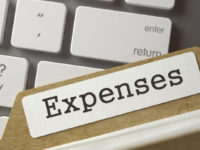Bookkeeping 101: everything you need to know when kicking off your start-up.
So, you’ve decided to join thousands of Australians and jump off the employment bandwagon to start your own business. There are so many different things to consider when setting up a new business but one thing you need to be on top of is your financial situation. Here’s my guide to what you need to do to make your new venture financially robust.
Make a business plan
The reason a lot of businesses fail is that they don’t have a plan. Every new business owner should sit down at the beginning (before they start the business!) and plan what they hope to achieve from their new business; in other words, establish your goals and objectives. A good way to achieve this is to establish a business plan.
The things you should consider in preparing your business plan include:
- defining what type of business you are in
- an analysis of the industry and markets you will operate in
- your goals and objectives, with your timeline to achieve these
- the main products and services that will be offered
- customers and your target market, both now and in the future
- advantages that your business has over others (ie its “unique selling points”)
- marketing plans to establish and grow your business
- suppliers you will require and others you might need, including staffing
- what your competitors are doing
- facilities required to operate your business
- your pricing – how much you will charge
- capital required to commence your business and potential financing required in the future
- what equipment will you need, now and later
- financial projections and an analysis of your cashflow requirements.
Keep good records
Good business records help you manage your business and make timely decisions. Business records are also useful if you want to sell your business and ensure better accuracy and ease when conducting annual compliance and preparing financial reports.
Under tax law, you must keep records to document and explain your business transactions, including records relating to income tax, GST, payments to employees and business payments. You can keep records on paper or electronically.
“Good business records help you manage your business and make timely decisions.”
It is also a legal requirement to keep your business transaction records for a minimum of five years, so it’s important you maintain good record-keeping practices. The accounting records you must keep include all documents relating to the income and expenditure of your business, as well as compiling and preparing the business’s financial reports and income tax.
An effective method of recording all your financial transactions will not only assist you in reducing administration time but will also provide a means of keeping accurate records to assist you in the analysis of your business activities, lodging and paying tax, meeting all your reporting requirements, seeking finance and attracting potential investors, as well as being beneficial when selling your business.
A further consideration, which not many new business owners consider, is that one day you may get audited by the ATO. When that day comes, you will need to be able to support the financial and tax transactions you have reported on. Comprehensive and accurate bookkeeping records will help you to achieve this.
Take care of bookkeeping
If you decide to look after your bookkeeping yourself, accounting software can help you to accurately record your income and expenses, with features such as the ability to automatically upload your bank transactions on a daily basis and back-up your information.
If you decide to outsource your bookkeeping to a specialist bookkeeper, you simply hand over your paperwork to them and they will take care of it, freeing you up to spend time doing what you do best and focus on running your business. An outsourced bookkeeper can also act as a second pair of eyes to help keep your business on track, while using accounting software that has the ability for both you and your outsourced bookkeeper to view your information together, remotely.
Monitor cashflow
One of the main reasons businesses fail is not necessarily because they’re not making a profit (although this is, of course, important) but because they run out of cash.
ASIC’s published data on insolvencies reports that almost 50 per cent of insolvencies were caused by inadequate cashflow (ie they ran out of cash and were unable to pay their debts when they were due). Directors of companies have a specific responsibility and obligation to not trade while the company of which they are a director is insolvent.
To help avoid incurring cashflow issues for your new company, there are several initiatives that should be considered at the outset. These include:
- Implement accounting software to quickly generate invoices as well as record income/expense transactions, reconcile cash movements and provide detailed reports on outstanding debts.
- Set up automated bank feeds to allow ongoing and real-time visibility on your business’s updated cash position, with direct updates to your accounting software.
- Make it easy for customers to pay you, so you can get paid faster through direct payment technology such as point-of-sale software, online technology systems, mobile card readers, etc.
Take care of your taxes
This might seem obvious but unfortunately failing to set money aside to pay tax is one of the most common pitfalls that new businesses fall into. Particularly if you’re coming out of a paid job, you’re probably used to getting your taxes deducted straight from your pay packet by your employer. But now you’re in business on your own account, nobody is going to be deducting anything so you need to proactively manage your cashflow to set money aside for future tax bills.
Remember, with small businesses, cashflow is king. Even if you seem to be trading profitably, if your customers aren’t actually paying your invoices you’ll struggle to pay your debts, and one organisation you definitely don’t want to end up in debt to is the ATO.
You might also need to register for GST. For most businesses, you only need to register for GST if your turnover from your business (combined with any other business you run) exceeds $75,000.
But being self-employed also comes with some tax perks. For instance, you have access to all the tax concessions available to small businesses, including the full expensing of capital assets, which is available until June 30 2022. That means you can immediately deduct the cost of any plant, tools or equipment you use in your business, including items such as computers and even most motor vehicles.
This article first appeared in issue 33 of the Inside Small Business quarterly magazine
















